Best AI tools for< Instruct Coding >
8 - AI tool Sites
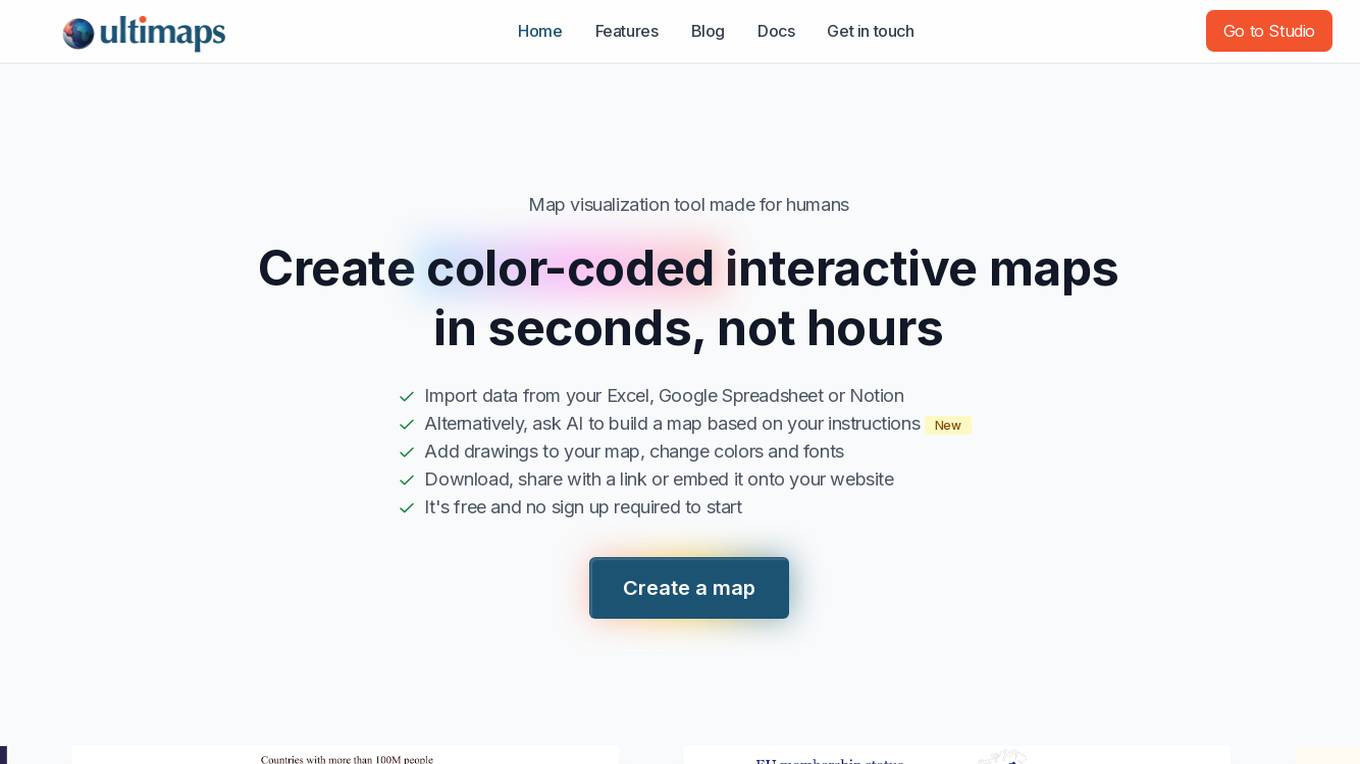
Ultimaps
Ultimaps is an AI-powered map visualization tool designed for humans to create color-coded interactive maps in seconds. Users can import data from Excel, Google Spreadsheet, or Notion, or instruct the AI to build a map based on their requirements. The tool allows users to add drawings, change colors and fonts, and easily download, share, or embed the maps. Ultimaps offers features like automatic color-coding based on imported data, customization options, auto-saving of visualizations, and the ability to create interactive maps without any coding. It is a user-friendly platform suitable for various mapping needs.
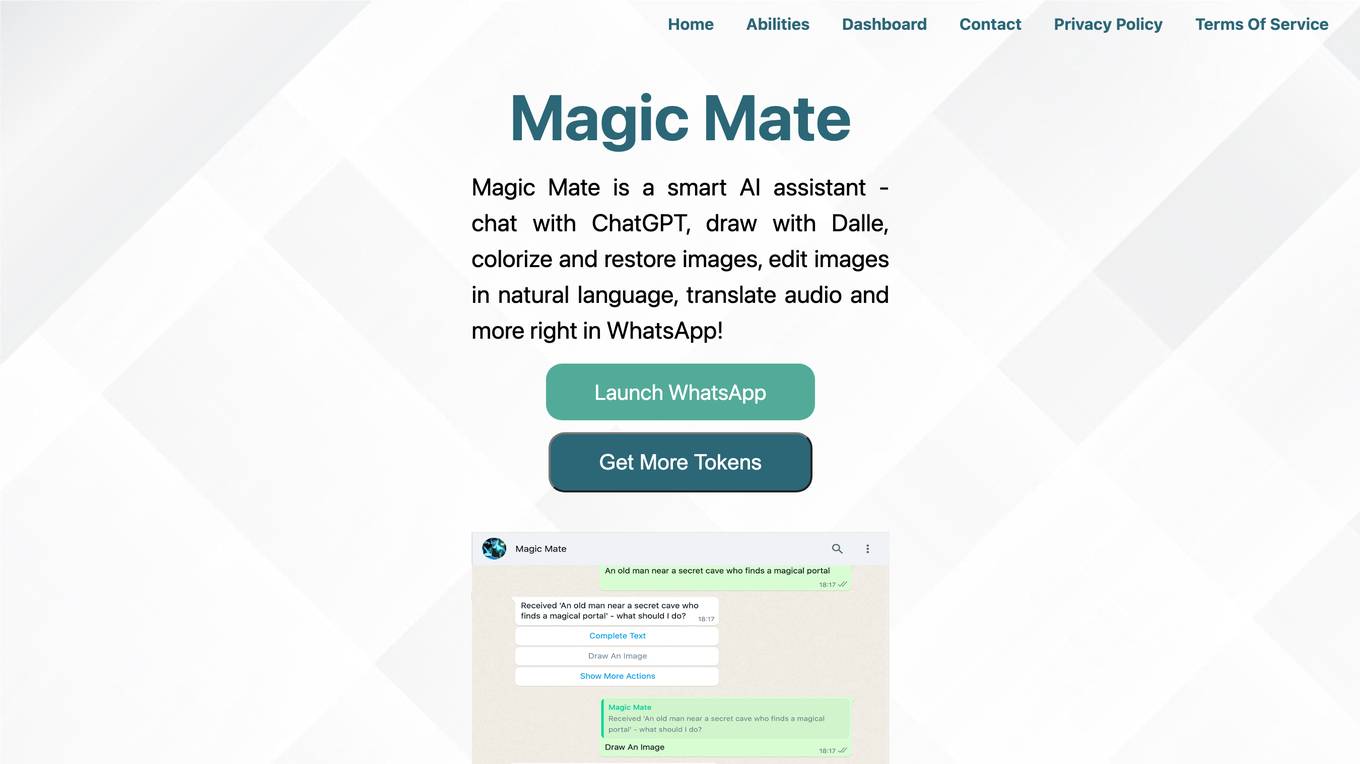
Magic Mate
Magic Mate is a smart AI assistant that offers various capabilities such as chatting with ChatGPT, drawing with Dalle, colorizing and restoring images, editing images using natural language, and translating audio directly within WhatsApp. It provides a seamless experience for users to access multiple AI features within the messaging platform.
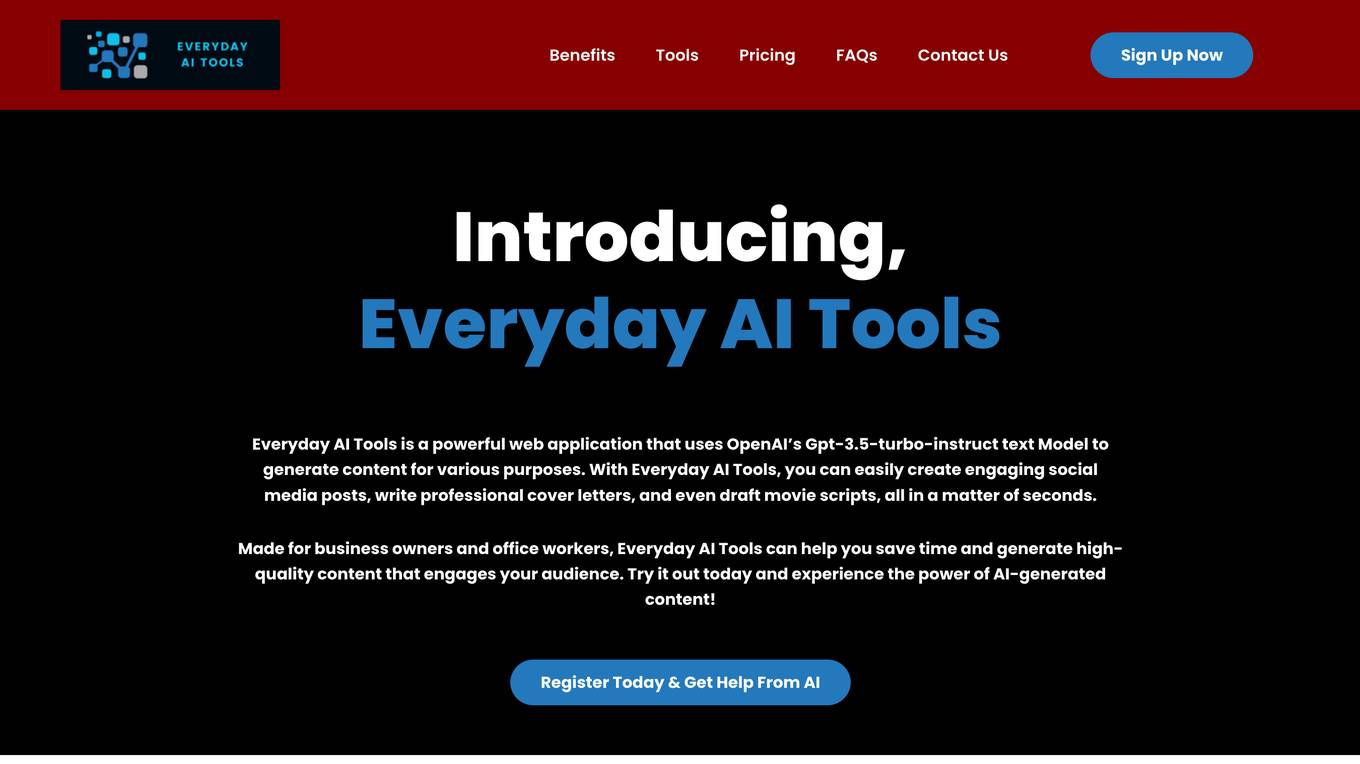
Everyday AI Tools
Everyday AI Tools is a powerful web application that uses OpenAI's Gpt-3.5-turbo-instruct text Model to generate content for various purposes. With Everyday AI Tools, you can easily create engaging social media posts, write professional cover letters, and even draft movie scripts, all in a matter of seconds. Made for business owners and office workers, Everyday AI Tools can help you save time and generate high-quality content that engages your audience.
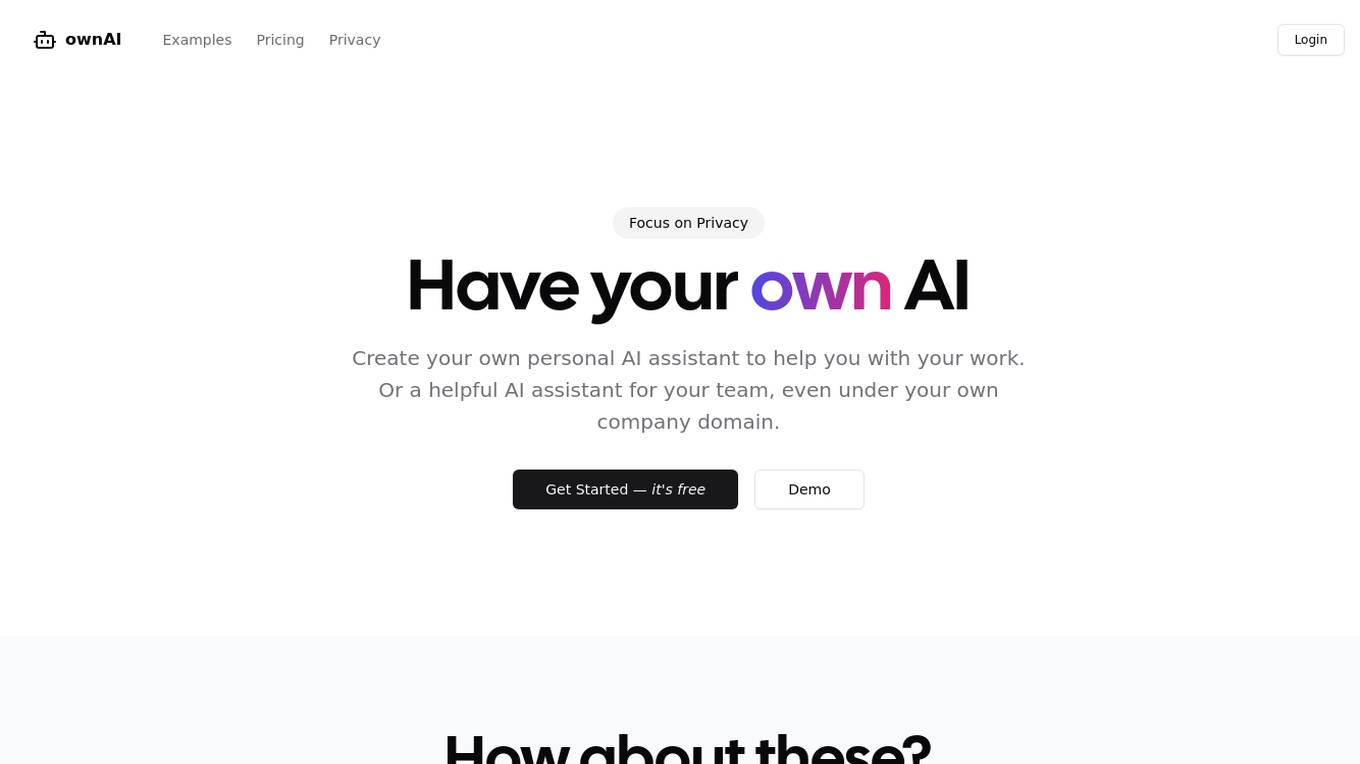
ownAI
ownAI is a platform that allows users to create their own personal AI assistant without the need for programming skills. Users can instruct their AI assistants on tasks and add knowledge as needed. The platform focuses on privacy and offers a range of AI assistant examples, from personal assistants to marketing creatives. ownAI is powered by open source AI models, providing users with independence from large AI companies.
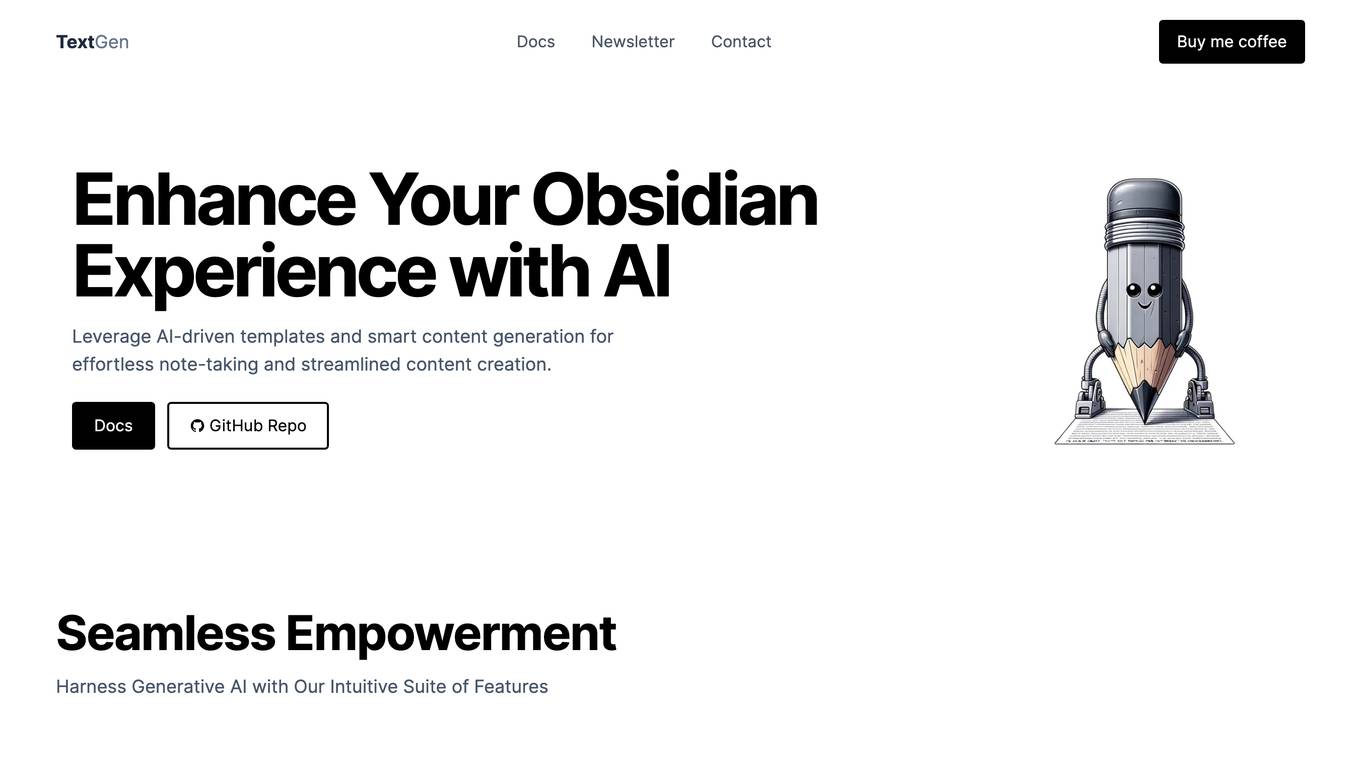
TextGen
TextGen is an AI-powered tool that enhances the Obsidian note-taking experience. It provides users with AI-driven templates and smart content generation capabilities, enabling effortless note-taking and streamlined content creation. TextGen is free and open-source, offering unrestricted access to its plugin and encouraging innovation within the community. The collaborative template hub fosters a shared creative space where users can exchange templates and explore new possibilities for generative AI applications in note-taking. TextGen's smart prompt customization feature allows users to tailor prompts based on template metadata, resulting in text outputs that are finely tuned to their specific context and needs. The extensive language model compatibility ensures flexibility, supporting a wide range of language models, including gpt-4-1106-preview (gpt4 turbo) 128k, gpt-3.5-instruct, claude, bard, and llama. The advanced template engine simplifies and enhances the note-taking routine, boosting productivity and efficiency. Optimized for the Obsidian experience, TextGen integrates seamlessly, augmenting personal knowledge management practices.
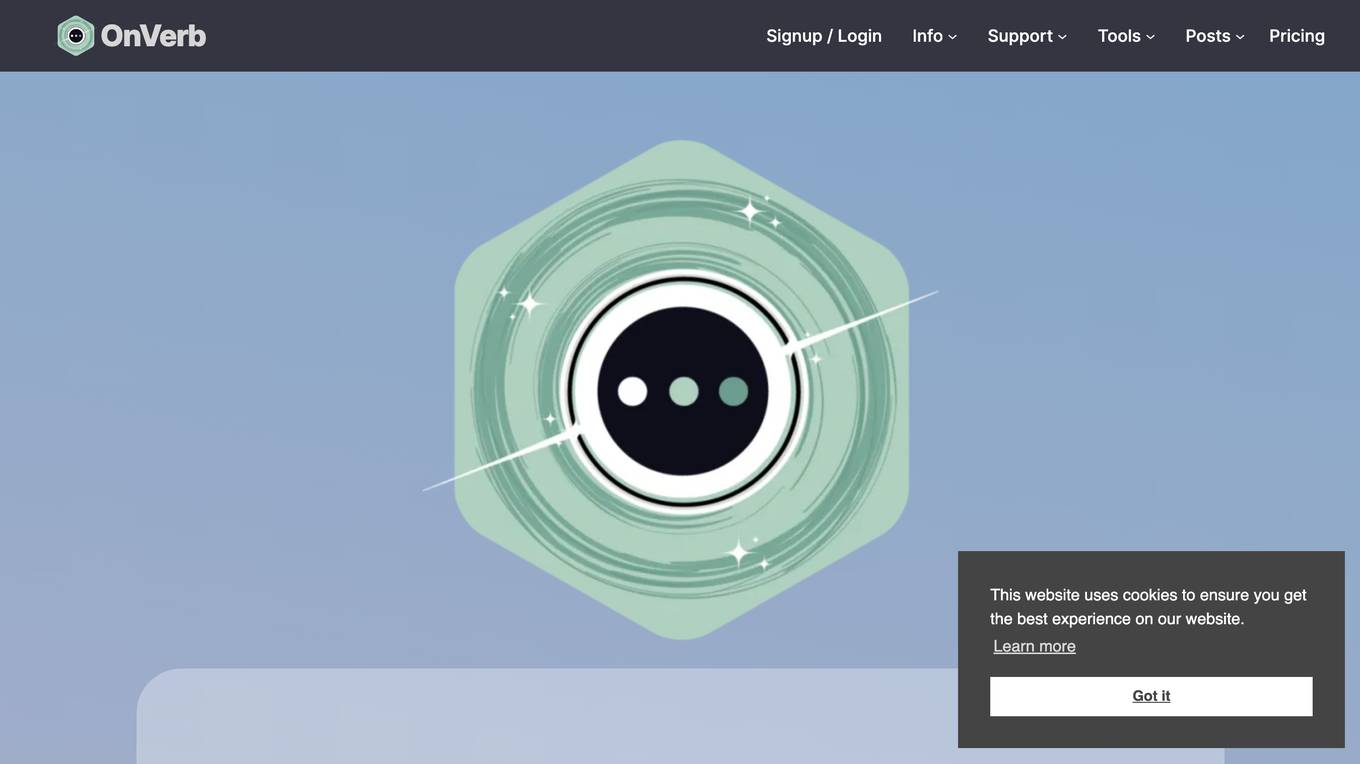
OnVerb
OnVerb is a platform that provides access to a range of AI chatbots, all on a single subscription. With OnVerb, you can easily create custom AI assistants for any content need. Our prompt builder will help you craft system prompts to instruct the AI, and allows you to include context rich data to create a custom experience with each chat, and get the right response every time. Security and data privacy sits at the heart of what we do, your data remains yours and is not used to train the AI, and this forms part of our agreement with the individual AI chatbot services we offer.

Allchemy
Allchemy is a resource-aware AI platform for drug discovery. It combines state-of-the-art computational synthesis with AI algorithms to predict molecular properties. Within minutes, Allchemy creates thousands of synthesizable lead candidates meeting user-defined profiles of drug-likeness, affinity towards specific proteins, toxicity, and a range of other physical-chemical measures. Allchemy encompasses the entire resource-to-drug design process and has been used in academic, corporate and classified environments worldwide to: Design synthesizable leads targeting specific proteins Evolve scaffolds similar to desired drugs Design “circular” drug syntheses from renewable materials Interface with and instruct automated synthesis platforms and optimize pilot-scale processes Operate “iterative synthesis” schemes Predict side reactions and create forensic “synthetic signatures” of hazardous/toxic molecules Design synthetic degradation and recovery cycles for various types of feedstocks and functional target molecules
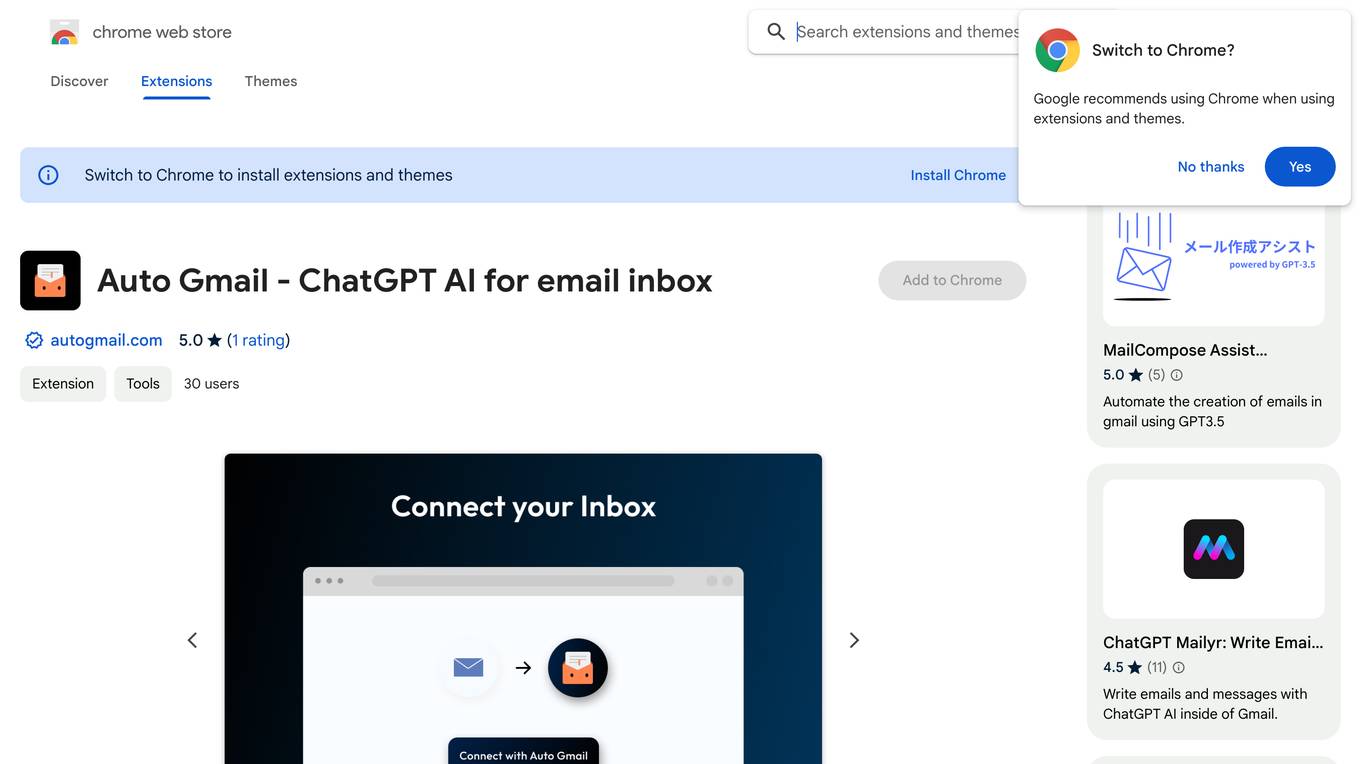
Auto Gmail - ChatGPT AI for email inbox
Auto Gmail is a Chrome extension that connects to your Gmail inbox and uses your data and ChatGPT to draft email responses to every inbound message. It is the best way of saving hours every day. Instead of improving your productivity with shortcuts or apps like Superhuman, simply let our AI learn about you and answer all your emails instead of you. You don't need to click or instruct the AI, it works on mobile and desktop and writes emails even when you're not in Gmail. Upon opening your inbox, you'll see the new drafts, ready to be sent. Your inbox contains everything you ever sent and therefore a big part of your knowledge. Stop repeating the same things and let Auto Gmail do the work. You stay in the driver seat of course and no email is ever sent without you actually hitting that "Send" button. Upon installation, drafts will appear even on the mobile app, allowing you to answer faster while on the go. You can instruct the AI and give it additional context such as links you'd like it to use (calendar links, tutorials, product pages and so on). Under the hood, Auto Gmail works by connecting to the Gmail API and uses ChatGPT (GPT 4) to draft email answers. For context, the most similar emails are passed along to help ChatGPT draft the most relevant answers. Auto Gmail retrains every week on your latest messages to stay up to date on new knowledge you sent per email.
0 - Open Source AI Tools
3 - OpenAI Gpts

Image Recreator
Upload an image to recreate it using DALL-E 3. Each request should include 3 images with unique IDs and corresponding Midjourney prompts. You can instruct GPT to make modifications to a specific image by ID or recreate images using Midjourney. —公众号:Vito的AI力量

DIY Soap and Candle Chemist
Instructs on creating homemade soaps and candles with techniques and recipes.
